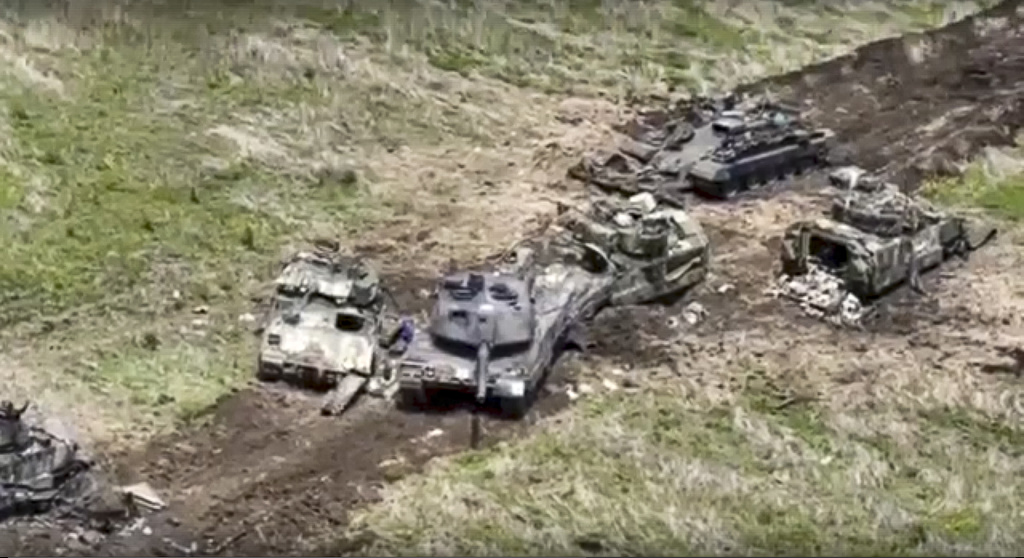The CEO of German weapons producer Rheinmetall has both acknowledged the loss of Leopard tanks in Ukraine and also tersely explained why the German public is seemingly unaware that the tanks have been destroyed.
During an interview with German news portal RND, Armin Papperger, CEO of Rheinmetall, was asked why the Germans hear so little about these losses. Papperger laconically replied, “Because we don’t speak about it.”
To the further question as to whether there are any such losses, he replied: “There are always losses in life.”
The loss of the German tanks has not been widely discussed on German television, but there have been articles about the losses in top newspapers like Bild and Welt. It is unclear how many Leopards have been lost so far in combat operations in Ukraine, but there have been multiple videos confirming the destruction or disablement of the German main battle tanks.
Papperger was also asked in the interview about his company’s plans to build a factory to produce the firm’s recently announced new tank, the Panther, in Ukraine. Papperger said that as the tank is currently in the prototype stage, it would take 15 to 20 months before issues are sorted out and mass production can begin.
When asked whether it is not dangerous to locate a weapons factory in Ukraine, Papperger replied: “There are also arms factories in Ukraine today. Such facilities can be protected. Assume that the Ukrainians know how to do this.”
[pp id=80687]
To the question of whether Rheinmetall will send German personnel to such a production facility, Papperger spoke about their existing factory of Lynx infantry fighting vehicles in Hungary:
“Who says we have to? We would primarily train local employees, and in some cases bring them to Germany for training. We always do that. Take our plant in Hungary. Of 300 employees there, exactly two are German,” Papperger said.
Writing about the losses of advanced Western weapons systems in Ukraine, U.S. news portal The War Zone wrote that “Ukraine is attacking without air support in an area that the Russians knew would be a likely vector and have prepared for such an advance for many months, including with mines and fortifications. While these vehicles are more capable than anything else in the Ukrainian arsenal, they are far from invincible, especially under those conditions.”






